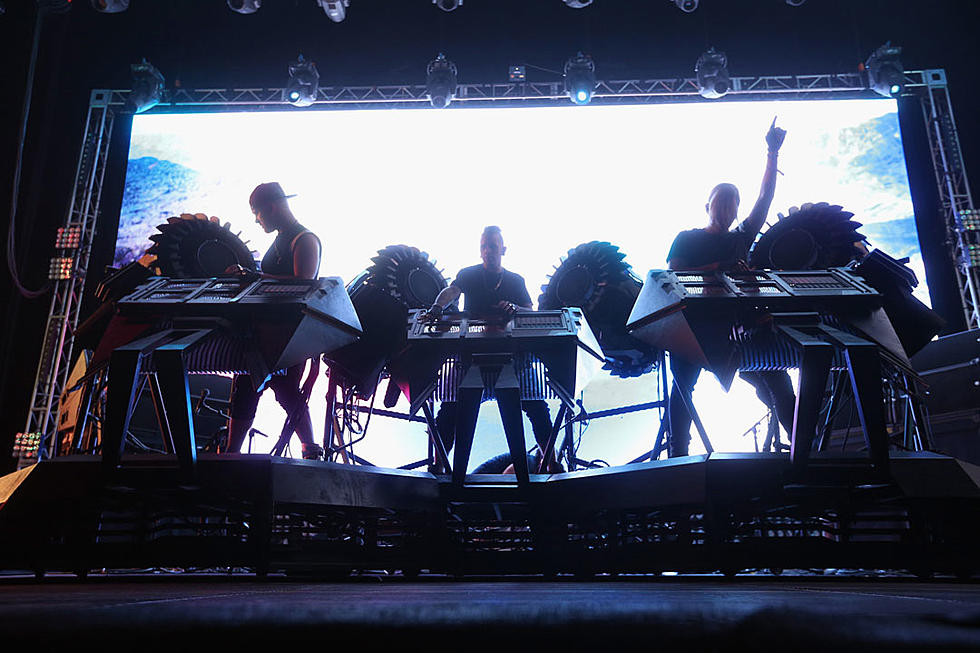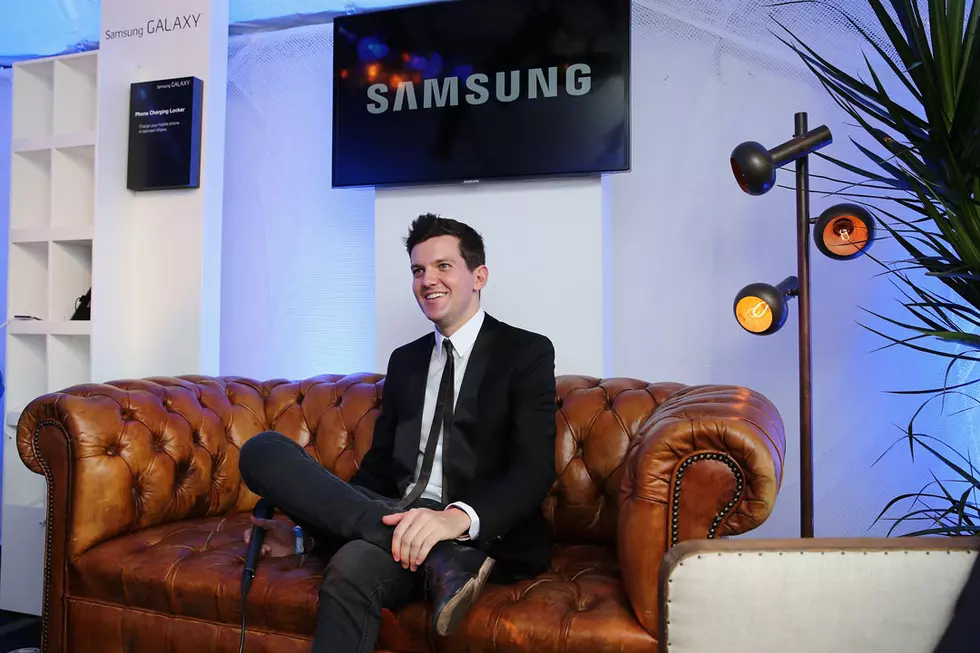
The Glitch Mob discuss the Future of Burning Man and Getting Back to Basics
[sg-gallery]
I had the distinct pleasure of kicking it with The Glitch Mob and getting back to the roots of their early success on the playa and the future of that community. With the 29th installment of Burning Man coming up a lot has changed, as have the trio of Ooah, Boreta, and edIT. Following the success of their second album Love, Death, Immortality, and a brand new stage production with massive midi cannons, the crew will be back on the playa in August throwing down some bass-heavy glitch-hop beats.
Can you tell me about Joshua Tree and the creation of Love, Death, Immortality?
edIT: We had been touring for close to three years for Drink the Sea and at the end of that tour cycle we knew we were going to write an album. We decided to head out to Joshua Tree to get some creative mojo and get a change of scenery from Los Angeles and tour life and hit the reset button in our headspace. It was great to be out in nature, in the desert.
Ooah: Just unplug from the daily grind of LA. All we had was us, a laptop, some recorders, and coffee. Getting back to basics.
You came up through sets on the playa, what do you think about the future of Burning Man’s music?
Boreta: I think its changed a lot. Burning Man has a lot to do with your perception: in some ways its gotten a lot more regimented and efficient and official. There’s set times where it was a lot more renegade when we started. But at the same time its still kind of the same shit. Its a bunch of open minded people doing their shit, freaking out in the desert with crazy sound systems. The rest of the world has changed a lot more than Burning Man has. There’s more police presence but once we got up there and started playing records it felt just like the old days.
Absolutely. It feels bigger.
Ooah:
But the vibe, its the same psychedelic desert party, there’s just 50,000 more people there.
Boreta: Although I will say what you’re gonna se happening over the next few years is an infiltration of a lot of bigger acts because its the last standing festival or whatever you call it. Last year we were out there and we were camping with Diplo and Major Lazer and they had a great time and they’re gonna go out and tell people. I guarantee you there’s gonna be more and more that come out of Burning Man they way us and Bassnectar and Random Rab did. I think it can be a really good thing too to change it up. People think it has to be a certain way but it is an organism in itself and if you have a lot of different music out there to shake it up. P. Diddy was there.
Do you think its still possible to still have that born out of burning man in the way you were and Is there anyone you see coming up that way?
Boreta: Yea absolutely. Even playing shows now you see a 14-year-old in the front row having his mind blasted by bass and those are gonna be the people ten years from now doing what we’re doing. We used to be those kids in the front row at Burning Man and Low End Theory. It’s a place thats ripe for experimentation. It’s an environment that’s very supportive to creativity. As long as they still book people that are strange and the vibe doesn’t go mainstream EDM acts then that can still happen.
God knows there are enough speakers out there.
Boreta: (laughs) Yea, there are enough speakers.
Is there ever any money exchanged these days for major artists despite the culture of the playa?
Ooah: I mean at least for us, we literally pay for everything out there. We bring our own food, our own water.
Boreta: And if they offered we would refuse it. Some people do get paid.
So maybe it is changing towards less of an open free community. There’s the whole Google camp that’s private.
Ooah: There’s always been that though. There’s always some sort of high-end expensive camp that some exec - it’s always been there.
10 years ago those same Wall Street guys were out there in their furry pink underwear because its the only time of the year when they get to do that. We love Burning Man.
You guys are well known for your creative song titles. Are the titles borne out of the music or do you come up with an idea and make a sound to fit that phrase?
edIT: Generally the song titles come after all the music after all the song titles are written. We take a long time coming up with the song names, there’s often clues or metaphors in the stories behind the tunes. We take a lot of time, effort, and care in what we want to say. Obviously at the end of the day we let the listener decide what that song and title mean to them.
Ooah: We also try to squeeze the title out of song. We’ll say generic words like epic and triumphant or this one is melancholy and heart-broken. We filter it down and down and squeeze it out.
Does that process help you create a context for the storyline of the music.
Ooah: No, it comes after. But after the months and months of creating the song its almost like the song titles is living at the end of the entire trail and we have to find it. We all kind of know when we come upon it, but its living way down there and you just have to dig you’re way to find it, so you just have to throw ideas at the wall and see what sticks.
Boreta: Spaghetti fridge style. The music does what it wants to and speaks through us. In the past we thought maybe the songs gonna be called this. We have a document with thousands of words that we keep but at the end of the day we distill what we think the songs wanted to be about and poetically give people an insight into that but also let it mean different things to different people. For a song like “Can’t Kill Us” some people think it was about something really violent, and some thing its about triumph. For us it was about attitude and overcoming but you could hear it and think it’s really sad. We like that so we try not to have too literal of song titles.
Can you take me through the how the name came out of a specific track?
Ooah: The can’t kill us one is perfect. We wrote the song and we were chopping up this vocal thing. It didn’t say anything but we kept listening to it and at one point Justin (edIT) was like “Does that say can’t kill us at the end?”
edIT: Afterwards we started to make it sound more like that and that’s what the song was about.
Ooah: It wanted to be “Can’t Kill Us.”
Boreta: I remember looking through this book of poetry and we had distilled this song about vulnerability and showing your true self that was very gentle with female vocals.
Josh and I were in the library in Silver Lake and I found an Edgar Allen Poe poem that talked about the beauty of an unhidden heart. I lot of ideas we remix from books.
Ooah: We get a lot of inspiration from art, paintings, poetry.
You’re music sounds a closer to an art piece than something that’s simply fun to dance to.
Ooah: Yea and we still want to make the audience dance but through an experience where you can feel the different waves of dancing.
Producers often refer to a flow they get into when they create music, and this is true of all art forms, its meditative, almost otherworldly: what do you do to get yourself in that space?
Boreta: Before we play each show we have a meditation we do to leave everything behind.
In the midst of chaos, screaming, and partying we clear out mind for ten seconds and say here’s to the now. It’s a chant just to be in the moment.
Ooah: Center ourselves, be here an now. Let’s go from this point forward to not worry about the past.
See you on the dancefloor,
More From Elektro Daily









